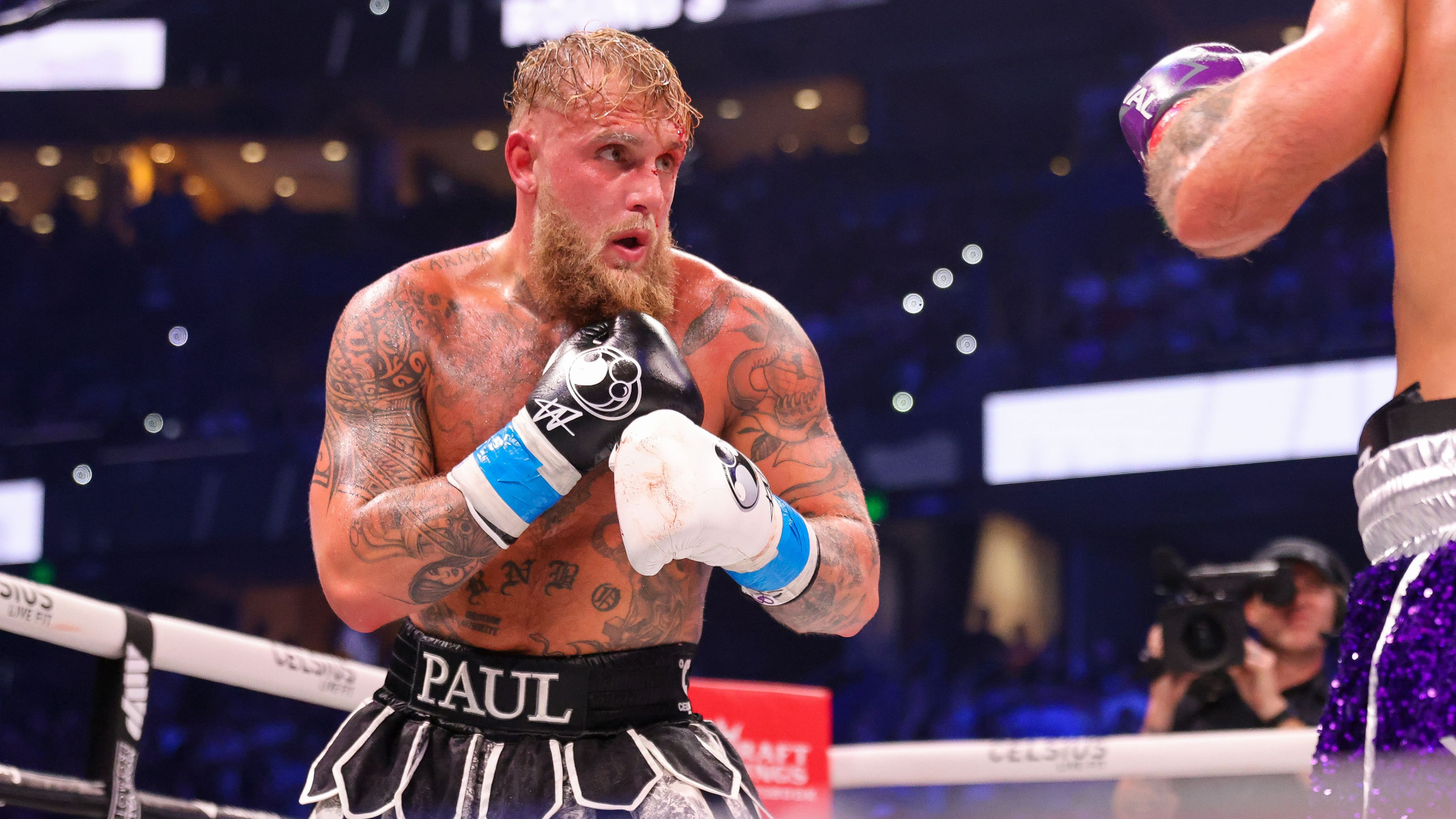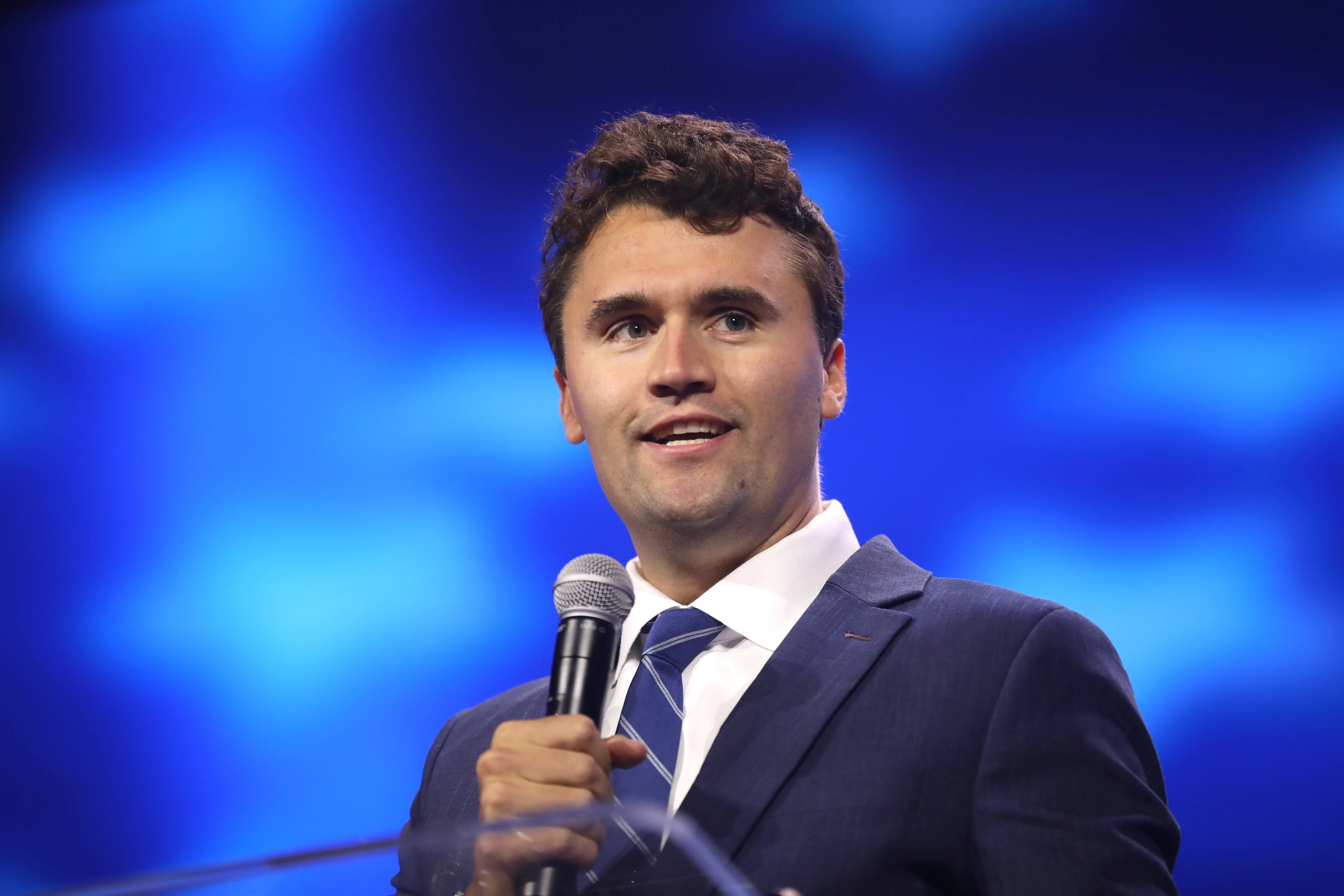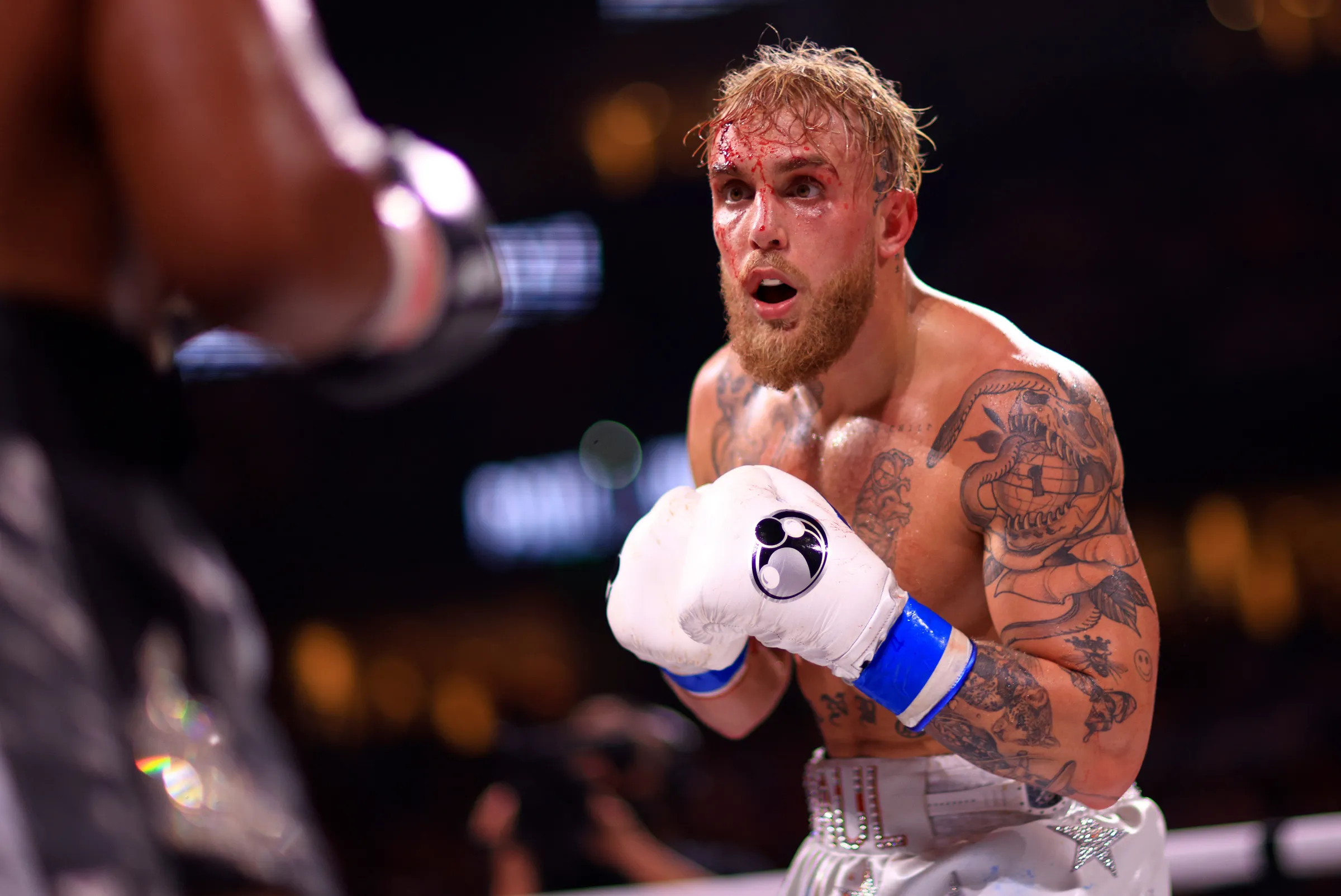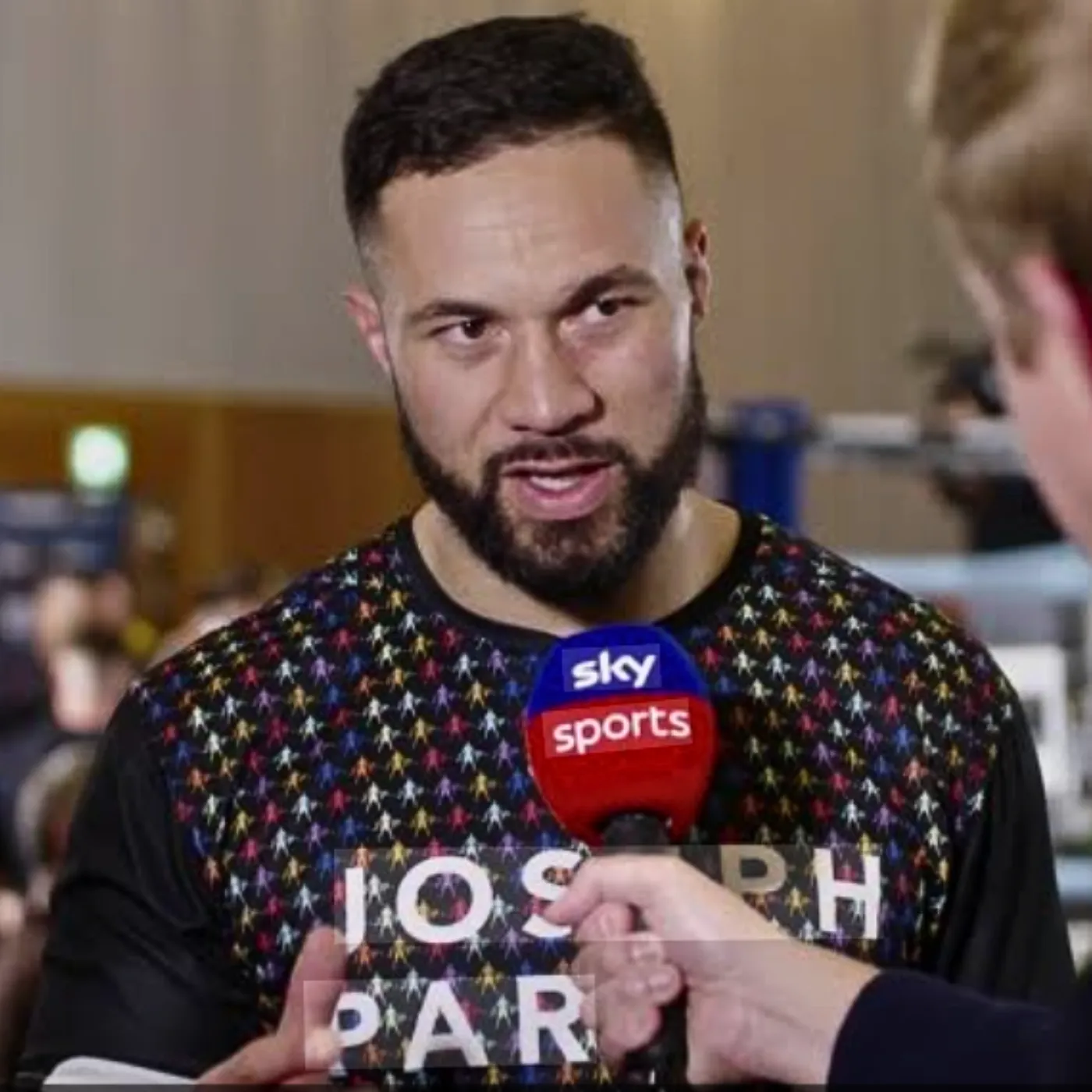

Jake Paul just made a slip of the tongue about the shooting of Charlie Kirk, a close associate of Donald Trump.
Recently, Jake Paul, the American social media influencer turned professional boxer, ignited a firestorm online after making controversial remarks regarding the tragic shooting of Charlie Kirk, the conservative commentator and close associate of former President Donald Trump. Paul’s comments, shared on the social media platform X (formerly Twitter), sparked intense debate, highlighting the complex intersection of celebrity influence, social media, and the responsibilities of public figures when addressing sensitive events.
In a statement that shocked many, Paul claimed that “Charlie Kirk was shot because he spoke the truth,” implying that Kirk’s death was a direct consequence of his outspoken views. While some audiences interpreted Paul’s remarks as an attempt to expose larger societal issues, many criticized him for exploiting a tragic incident for attention, raising questions about the ethical boundaries of commentary by public figures.
This article will explore the nuances of Jake Paul’s controversial statements, the public reaction, and the broader implications for social media, celebrity culture, and political discourse in the United States.
The Context: Charlie Kirk and the Shooting Incident
Charlie Kirk, a well-known conservative activist and commentator, has long been a prominent figure in American political media. He is the founder of Turning Point USA and has served as an advisor to various political campaigns, often aligning closely with the Republican Party and Donald Trump.
The shooting of Kirk sent shockwaves through political and media circles. Details remain sensitive, but the tragedy was widely reported as a targeted incident, raising concerns about the safety of public figures, the rise of politically motivated violence, and the increasing polarization in contemporary discourse.

It is within this highly charged environment that Jake Paul made his statement. By suggesting that Kirk was shot for “speaking the truth,” Paul introduced a narrative that not only politicizes the tragedy but also places him at the center of public scrutiny.
Jake Paul’s Social Media Statement
On X, Paul wrote:
“Charlie Kirk was shot because he spoke the truth.“
The wording of this comment immediately sparked debate. Some interpreted it as an attempt to highlight a perceived societal bias against outspoken conservative voices, while others viewed it as an irresponsible statement exploiting a personal tragedy for personal gain.
Public Reaction: Support and Criticism
The response to Paul’s remarks was swift and polarized.
Supportive Responses
Some supporters argued that Paul was merely voicing concerns about the safety of outspoken figures in the political arena. They viewed his comments as a reflection of broader societal issues, including cancel culture, threats to freedom of speech, and the risks faced by public figures who challenge prevailing narratives.
Critical Responses
However, the majority of reactions were critical. Critics accused Paul of:
-
Exploiting a Tragedy: Using Kirk’s death to gain attention and remain relevant in public discourse.
-
Spreading Misinformation: Suggesting causality without evidence can contribute to conspiracy theories.
-
Fueling Division: Amplifying political polarization by framing the shooting as a targeted attack based on ideology.
Media outlets and commentators also questioned the ethics of a celebrity speaking on matters involving violent crime and sensitive political context, emphasizing the responsibility that comes with a large platform.
The Role of Social Media in Amplifying Controversy
Social media platforms, particularly X, serve as both stages and amplifiers for public figures like Jake Paul. When a controversial statement is made, it can quickly reach millions of users, creating viral discussions and debates.

Mechanisms at Play
-
Algorithmic Amplification
Controversial statements often receive greater visibility due to algorithms favoring engagement, ensuring that Paul’s comment spread widely and rapidly. -
Echo Chambers
Followers of Paul who align with his viewpoints may reinforce his narrative, while opposing groups counter it, intensifying conflict. -
Media Coverage
Traditional media outlets picked up the story, further extending its reach and magnifying public scrutiny.
Celebrity Commentary and Responsibility
The Jake Paul – Charlie Kirk episode underscores the broader issue of celebrity responsibility in public discourse. As public figures gain visibility, their statements can have real-world consequences:
-
Influence on Public Opinion: Millions of followers may interpret celebrity statements as factual or authoritative.
-
Risk of Misinterpretation: Ambiguous or provocative statements may be taken literally or out of context, fueling misinformation.
-
Ethical Considerations: Commenting on tragedies involving loss of life carries moral responsibilities, particularly regarding sensitivity, evidence, and intent.
Analyzing Jake Paul’s Motives
While some critics paint Paul as opportunistic, there are multiple lenses through which to view his actions:
Strategic Publicity
Jake Paul thrives in the intersection of combat sports, entertainment, and social media. By commenting on a high-profile event like the Charlie Kirk shooting, he ensures attention remains focused on him, sustaining relevance in a crowded media landscape.
Political Signaling
Paul’s framing of the incident might resonate with audiences concerned about freedom of speech, perceived political bias, or safety threats to outspoken conservatives, thus aligning him with a segment of the public.
Genuine Concern
Some supporters might argue that Paul intended to raise awareness about threats to public figures and the dangers of societal division, albeit expressed in a controversial and provocative manner.
Potential Consequences for Jake Paul
Paul’s remarks have multiple potential repercussions:
-
Backlash and Criticism
Public figures often face intense scrutiny, and exploiting a tragedy may harm credibility or brand image. -
Amplified Political Debate
His statement feeds into the broader political discourse, potentially intensifying polarization. -
Legal and Platform Repercussions
While unlikely, platforms like X monitor for content that spreads misinformation or promotes harmful narratives, which could trigger moderation actions. -
Impact on Brand and Sponsorship
Controversy can attract attention, but also pose risks to existing partnerships and future opportunities.
The Ethics of Commenting on Tragedy
Experts in media and ethics emphasize the responsibility of influencers like Jake Paul:
-
Fact-Checking: Public statements about sensitive events should be grounded in verified facts.
-
Sensitivity: Respecting the victims and their families is paramount.
-
Avoiding Exploitation: Leveraging tragedy for publicity or political messaging risks moral and reputational harm.
Paul’s comments blur these lines, raising questions about the balance between free expression and ethical responsibility.
The Broader Cultural Impact
The episode highlights several cultural phenomena:
-
Celebrity-Driven Political Narratives
Public figures increasingly shape political discourse, sometimes overshadowing traditional journalism. -
Polarization in the Digital Age
Platforms like X amplify controversy, creating rapid and often extreme reactions. -
The Interplay Between Sports, Politics, and Media
Jake Paul, a professional boxer and influencer, demonstrates how sports figures can influence political conversations, intentionally or otherwise.
Comparisons to Past Controversies
Historically, celebrity commentary on sensitive topics has generated similar debates. Figures such as Kanye West, Logan Paul, and Conor McGregor have faced backlash for controversial remarks, illustrating a recurring pattern:
-
Visibility amplifies impact
-
Provocative statements attract engagement
-
Public figures must navigate ethical and reputational risks
Jake Paul fits squarely within this pattern, with his remarks on Charlie Kirk serving as the latest case study.
Public Discourse and Polarization
Paul’s statement illustrates how social media can exacerbate societal divides:
-
Supporters frame the shooting as a political attack on free speech.
-
Critics view the comment as opportunistic exploitation of tragedy.
-
The debate extends across platforms, from X to mainstream media, sustaining attention and conflict.
This polarization underscores the challenges of maintaining informed, nuanced discussions in an age dominated by rapid digital commentary.
Looking Forward: What to Watch

For Jake Paul
-
Will he clarify or retract his statement to reduce backlash?
-
Could he attempt to leverage the controversy for future events or fights?
-
How will public perception evolve if he continues to comment on sensitive political events?
For Social Media Platforms
-
Monitoring and moderating celebrity commentary remains a key challenge.
-
Decisions about removing, limiting, or labeling posts could influence discourse and public reaction.
For Public Audiences
-
Encourages critical consumption of celebrity statements.
-
Highlights the need for independent verification before accepting provocative claims as truth.
Conclusion: The Lessons from Jake Paul’s Controversy
The remarks of Jake Paul regarding the tragic Charlie Kirk shooting provide a vivid example of the complex interplay between celebrity influence, social media, and public discourse. While some audiences may see his statements as raising awareness about political bias and free speech, many others view them as opportunistic, insensitive, and potentially misleading.
This episode underscores the responsibilities of public figures in navigating sensitive events, reminding both celebrities and audiences that visibility comes with accountability. In an era where a single tweet can spark national debate, the stakes are higher than ever.
As the situation continues to unfold, the world will watch closely — not just the fallout for Jake Paul, but also how society negotiates the boundaries of free expression, celebrity influence, and ethical communication in the digital age.


















